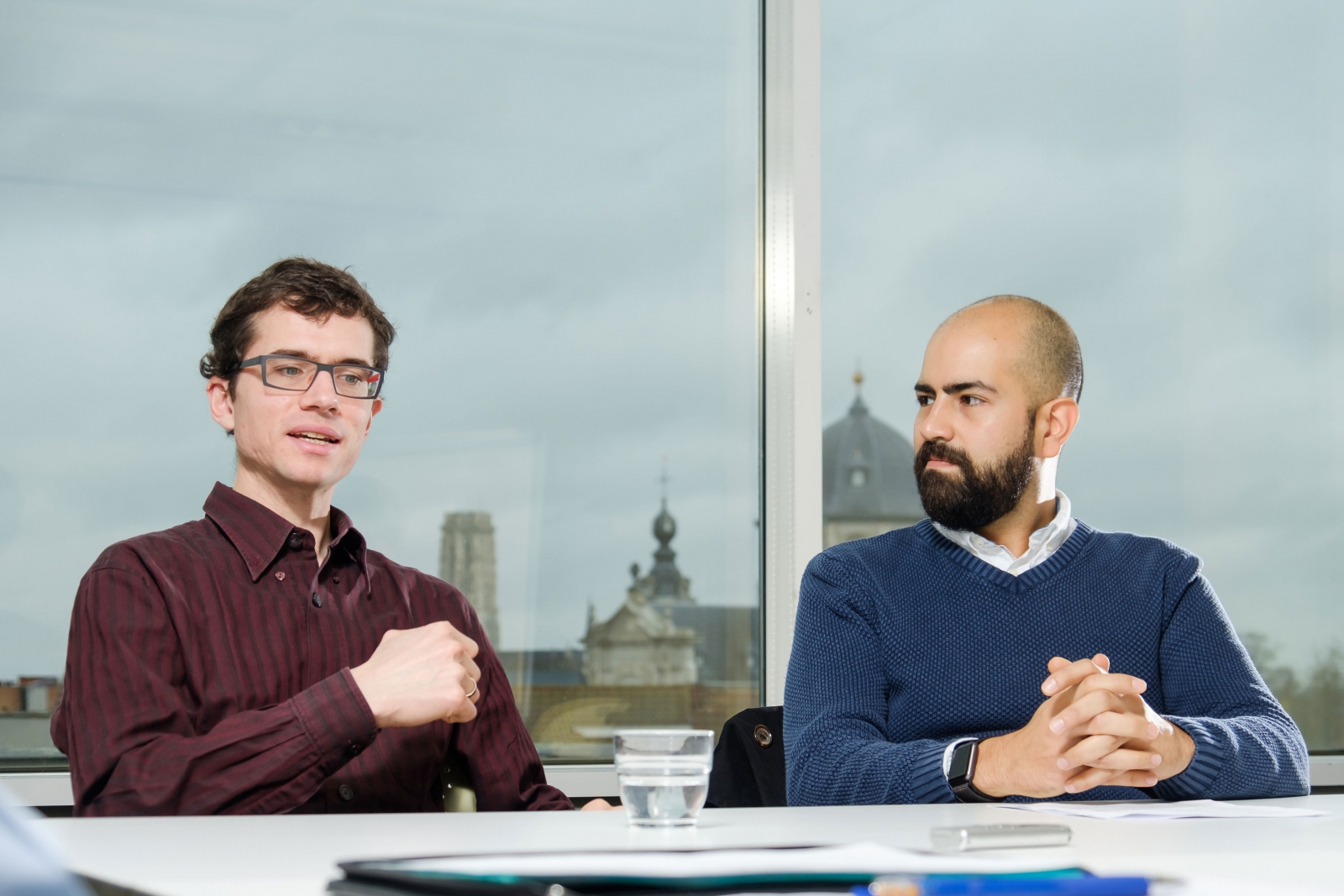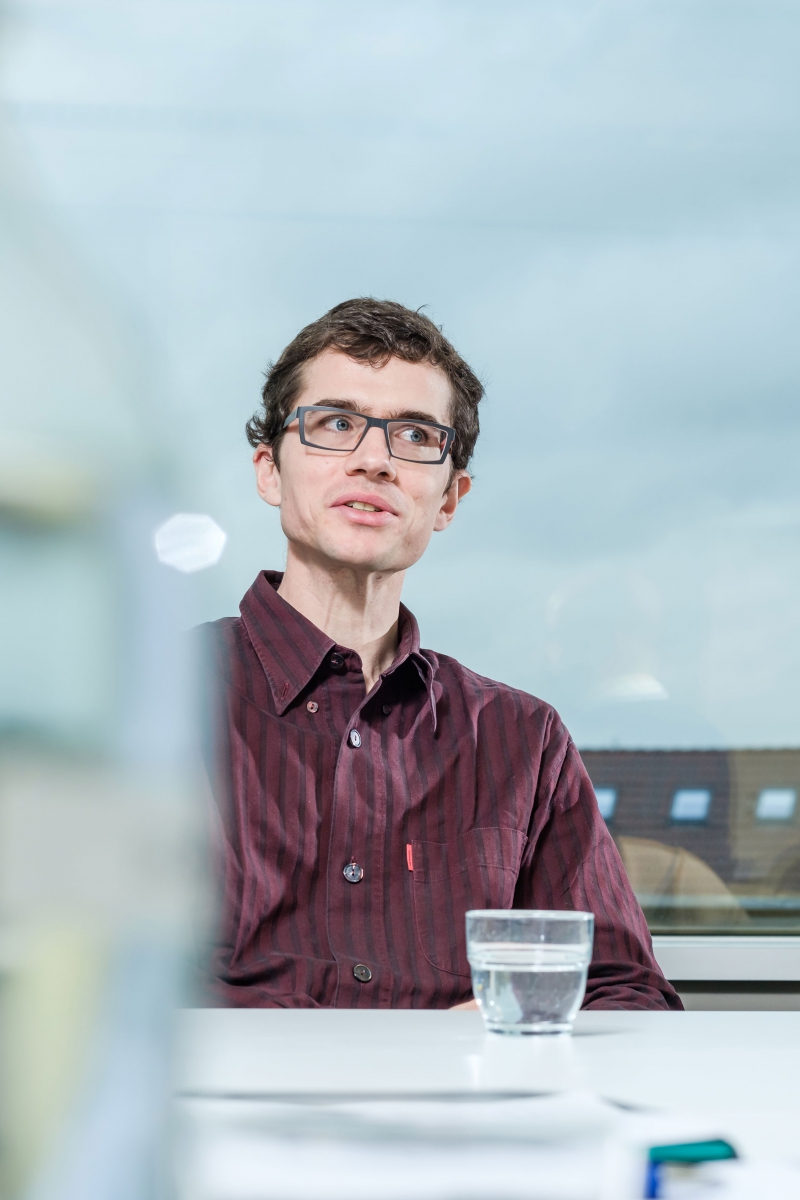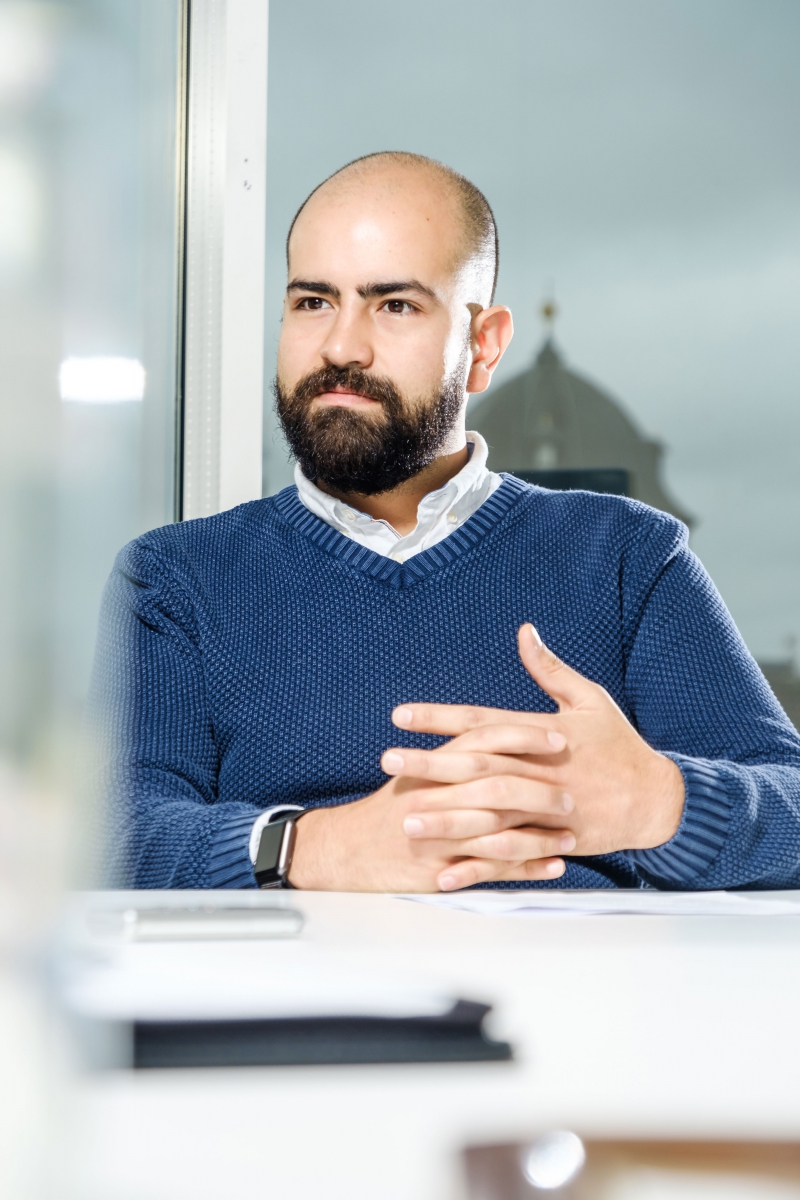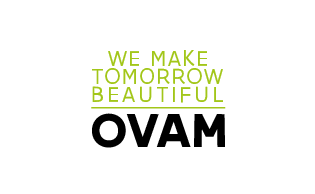We want to get an objective picture of the sustainability of products and materials using our measuring instruments
Wednesday 10 July 2019
Interview with Luc Alaerts and Gustavo Moraga
Provide raw materials and products with the longest and highest quality service life possible. That is the philosophy of the circular economy. It’s an important theme at a time when the climate issue determines the agenda more than ever. The Circular Economy Policy Research Centre brings researchers together. The goal? Looking at the future in a well-founded way. How will the circular economy change our daily lives in the coming decades? This interview series delves into their insights.
Gustavo Moraga is a researcher at Ghent University and moved from Brazil to Belgium. Together with Luc Alaerts, a researcher at KU Leuven, he studies the measurability of the circular economy. “Offering governments and policymakers a guide and connecting the loose ends. That is our aim.” Welcome to the wonderful world of indicators and measuring instruments.
Indicators
Do Gustavo’s Brazilian roots influence their research? “Well,” Gustavo starts his story, “For example, Brazil is rich in raw materials and Europe is more dependent on imports in this area. These differences should be kept in mind when composing the indicators. Because what is relevant for Brazil is not necessarily relevant for Europe.”
The term will often still pop up in the conversation: indicators. “Do you want to know if and how we are evolving towards a circular economy? Then you use numerous indicators,” says Luc Alaerts. “These measuring instruments give policymakers an idea of the direction we are heading in.”
“Do you want to buy a new car? Then car sellers offer a range of criteria to assess the different car models. Do you bundle all these criteria? Then you get a good idea of your best choice. This also applies to our research. We are working on substantiated measurement systems that allow governments to monitor the evolution towards a more sustainable economy.”
“Striving for a circular economy is working towards a society in which you use products as long and as qualitatively as possible.”

Snapshot
Gustavo: “Striving for a circular economy is working towards a society in which you use products as long and as qualitatively as possible. Here’s a simple example to make it clear. Suppose that, as a child, you gave the toys you became too old for to your younger brother. Who then passes it on to his children. It’s a much better option than simply throwing it away. To make this principle even more widespread around the world is to work towards a circular economy.”
Luc: “Another great example is your smartphone. Are you buying a new model? It’s a lot more convenient if the seller can show you a repairability index. This allows you to select your ideal device quickly and efficiently.”
“Does the government want to focus on an even more sustainable policy? Then it needs data. We divide them into two large groups. Indicators at the level of society, which tell us more about waste, recycling, or materials, and product indicators. The recovery index for smartphones is a good example of the latter.”
“Unfortunately, such indicators are too often just a snapshot. They do not teach us anything about the direction in which we are evolving. Or about what additional measures we need to take.”
“We want to get an objective picture of the sustainability of products and materials using our measuring instruments.”
Direct policy feedback
Gustavo: “It often starts with the definition of circular sectors. How do you determine if an industry is circular or not? Or how many people work in the circular economy? The answers to these questions are tools that provide direct feedback.”
 Luc: “Because what are policymakers interested in? In the added value, the number of new jobs, and the extra investments that a larger circular economy generates. All of which require more direct policy feedback. And we want to provide this too.”
Luc: “Because what are policymakers interested in? In the added value, the number of new jobs, and the extra investments that a larger circular economy generates. All of which require more direct policy feedback. And we want to provide this too.”
“How we do that? By filling the gap between economic statistics by sector and concrete but specific product data. Therefore, our task is to develop new indicators. We are also dependent on the business community for this.”
Gustavo: “We hope to find many missing links in the future. Do we produce less waste? That does not necessarily mean that our economy will become more sustainable. We still do not have enough measuring instruments to make substantiated statements about this.”
Luc: “Even though we don’t focus solely on materials with our measuring instruments, they play an important role in measuring circularity. And measuring that is crucial. It’s not surprising that ‘if it isn’t measured, then it didn’t happen’ is an adage heard frequently within policy circles.”
“We are working on substantiated measurement systems that allow governments to monitor the evolution towards a more sustainable economy.”
Missing data
“We want to get an objective picture of the sustainability of products and materials using our measuring instruments. To this end, we examine how the economy meets our needs. And all this in large fields such as mobility and housing.”
“Because measurability plays a major role there too. This is how we are evolving more and more towards passive houses in housing construction. These houses perform much better in terms of energy. But what if, after the demolition of such a house, you are left with tons of non-recyclable waste? There would be a major environmental gain when building materials can be reused. Therefore, we have to consider all aspects in a circular economy.”
 Gustavo:“Thinking about our housing needs is at least as important as data on materials. What types of housing will we need in the future? “Technology influences fast changes in society. Our housing needs are not the same as before, we are adapting to new ways to use homes. What types of housing will we need in the future? Maybe it is possible to share infrastructural spaces, such as laundry for example. This would change the need for washing machines but also affects how often the users would use the infrastructure. The question is how to reconcile the needs of today with the existence of data.”
Gustavo:“Thinking about our housing needs is at least as important as data on materials. What types of housing will we need in the future? “Technology influences fast changes in society. Our housing needs are not the same as before, we are adapting to new ways to use homes. What types of housing will we need in the future? Maybe it is possible to share infrastructural spaces, such as laundry for example. This would change the need for washing machines but also affects how often the users would use the infrastructure. The question is how to reconcile the needs of today with the existence of data.”
“Thinking about that makes it immediately clear that we are still missing a lot of data. Looking for that data is a long-term job. We need to consult the business community for some of that data. Other statistics are in the hands of the public administrations. Therefore, our challenge is to find ways in which data exchange becomes a win-win situation for both parties.”
This publication reflects the views only of the interviewees, and the Flemish Government cannot be held responsible for any use which may be made of the information contained therein.

.png)






